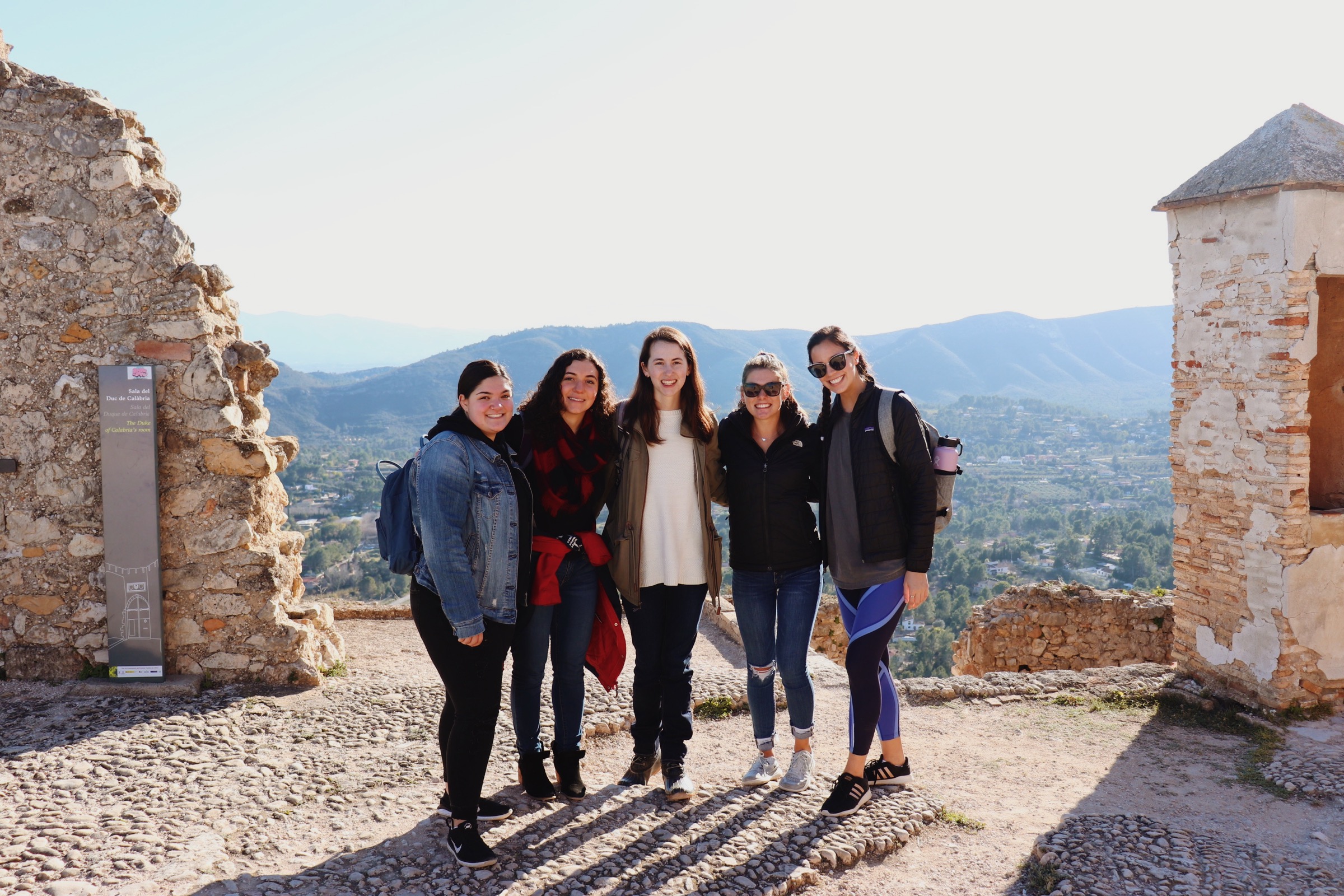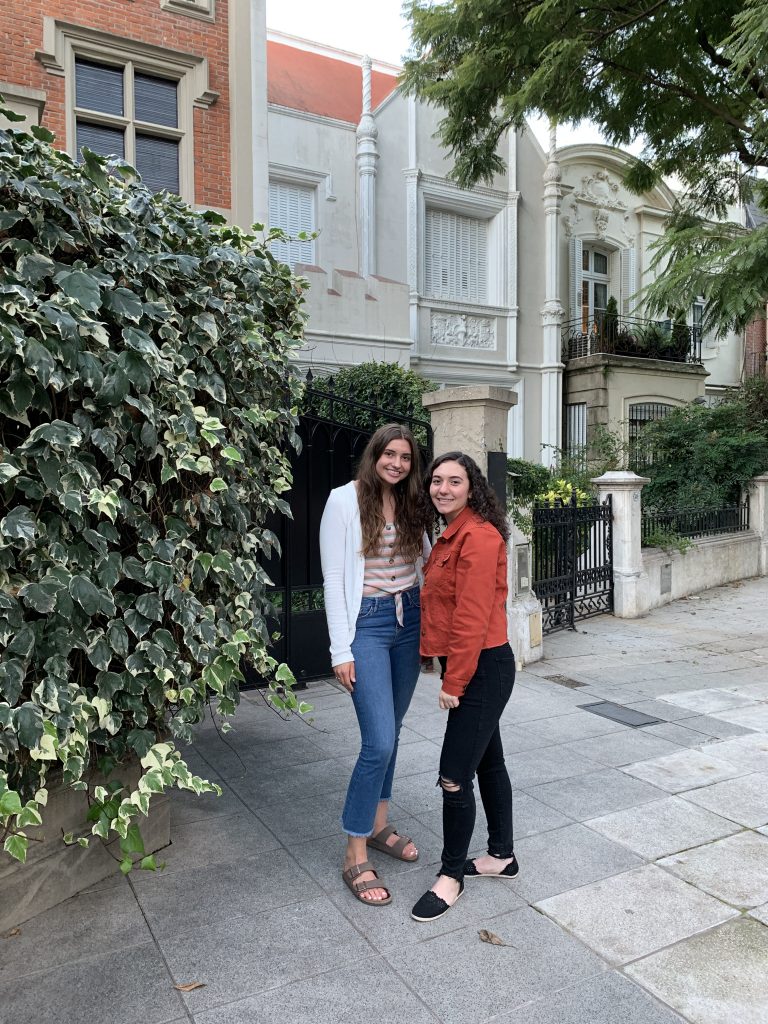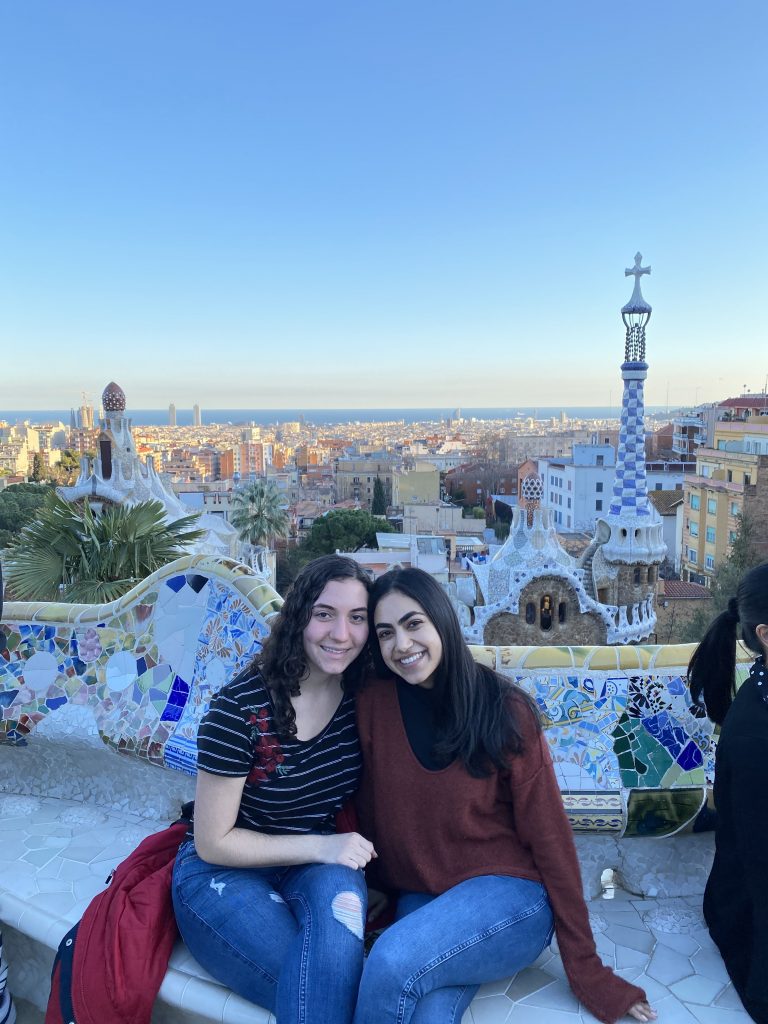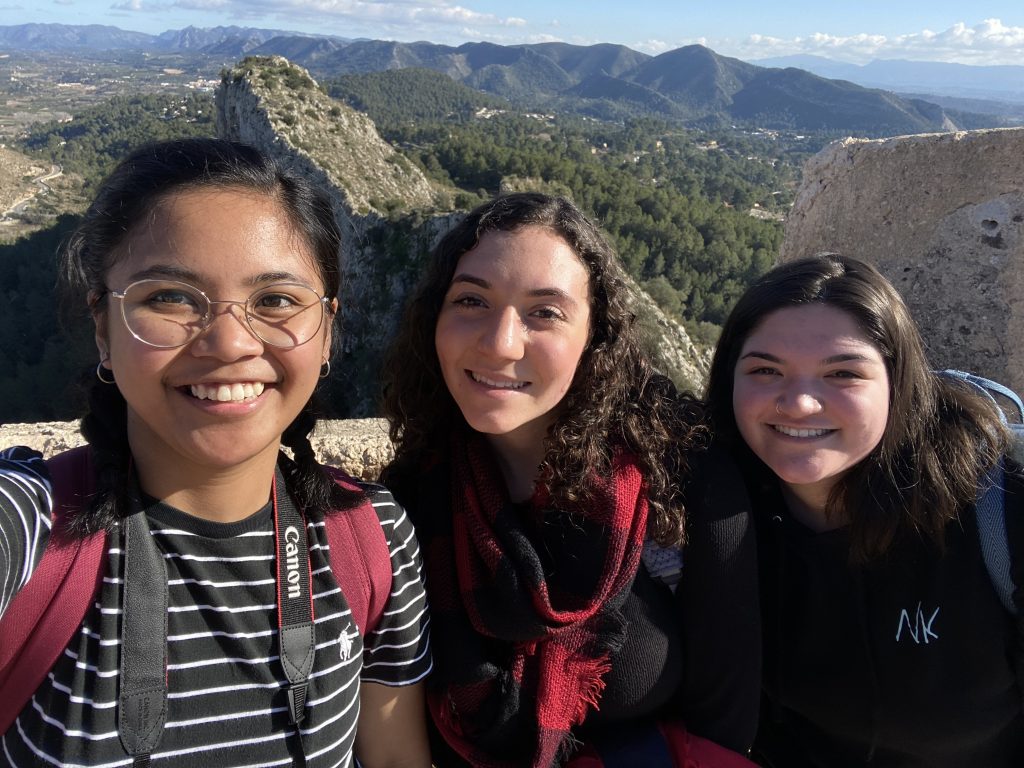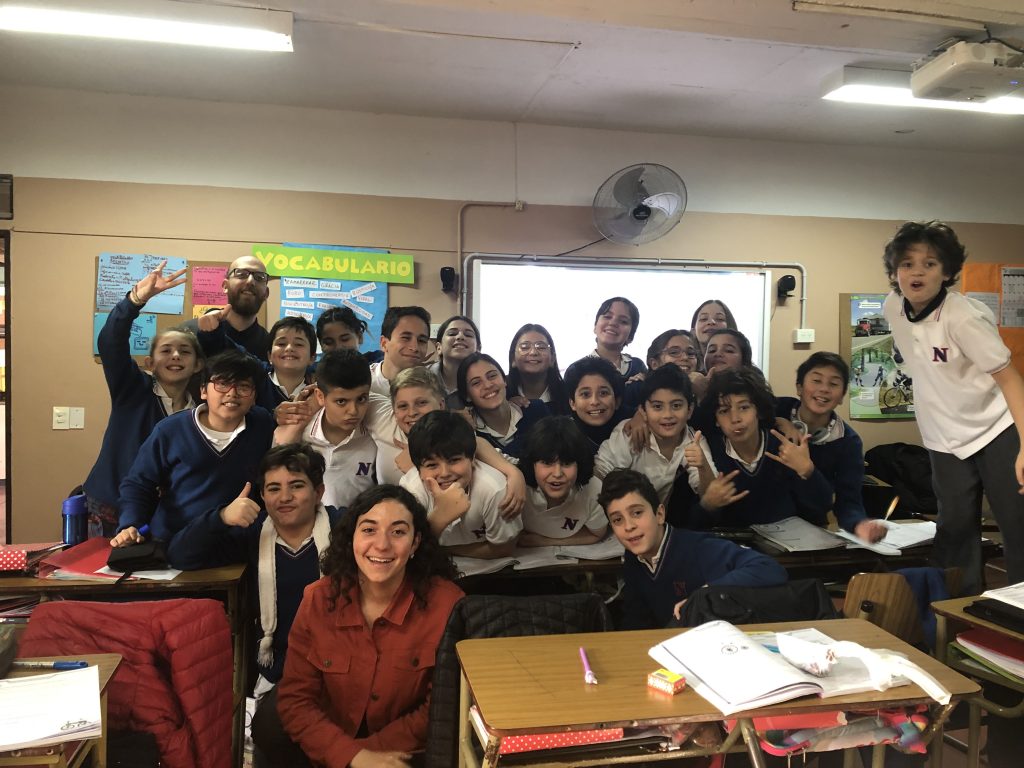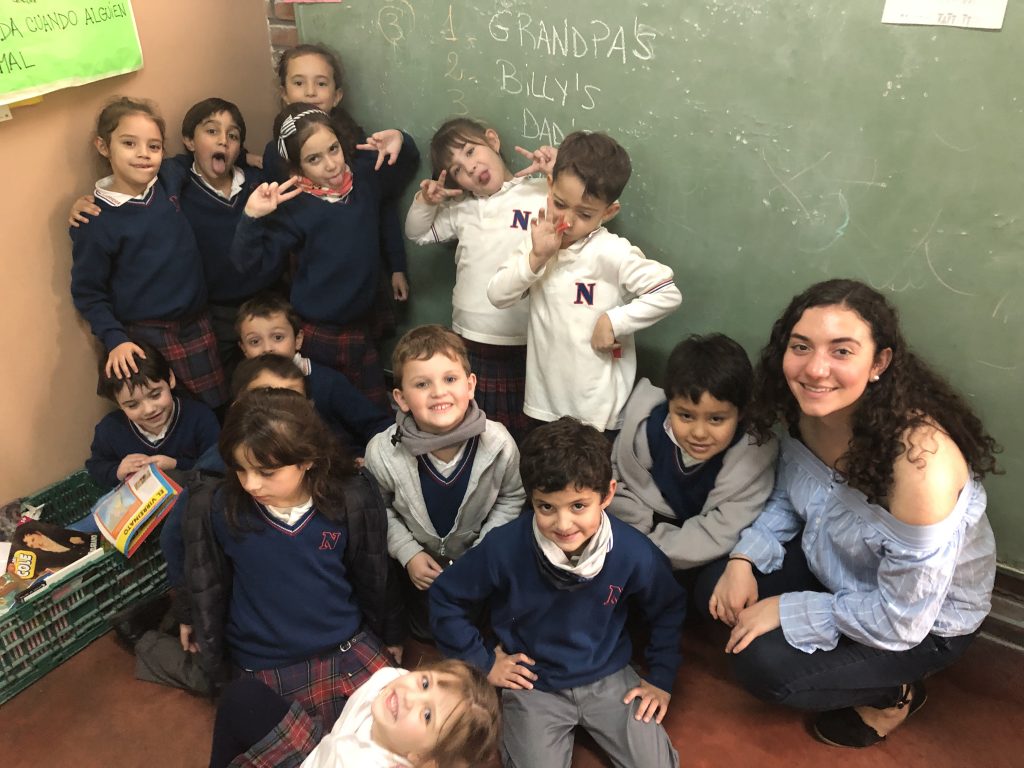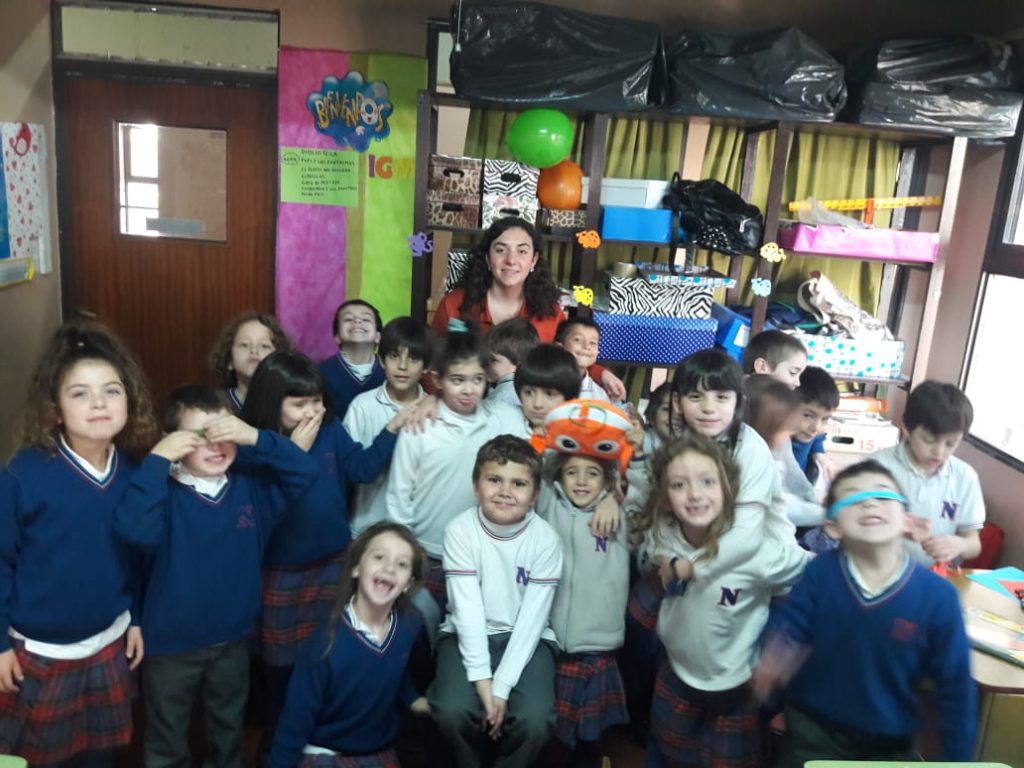Carla Simone always knew she wanted to be a teacher; she just didn’t know exactly which subject. From a young age, she loved working with kids, being a role model, and helping students learn. When she started taking Spanish classes in high school, she fell in love with the language, finding her subject—and her passion—at the same time.
Carla is currently a junior at Michigan State, studying Spanish on a secondary education path. Her experiences with the Spanish language over the last few years—both at Michigan State and abroad—have changed the ways she thinks about the languages we speak, and education as a whole.
Last summer, Carla spent two months in Buenos Aires, Argentina through the College of Arts and Letters’ international internship program. While there, she worked at a bilingual school teaching English to 1st – 7th grade students. Getting real-world language teaching experience was reassuring, because it proved that she had chosen the right career—she loved teaching and getting to know her students. She also enjoyed observing the ways that the education system differed in another country, especially in regard to language learning.
At her school, teachers, parents, and students alike valued English as a subject. Because of that, classes started as early as kindergarten and were much more intensive, and Carla could see the results: her 5th grade students were already proficient. It was a large change from the way she’d learned Spanish here in the United States.
Though she’d always been interested in learning a second language, Carla’s first opportunity to take a full year of Spanish didn’t come until high school. Even then, she spent three years learning mostly grammar and vocabulary without really putting it all together. The transition to her first Spanish class at MSU was a challenge, because the focus abruptly shifted to conversation and communication skills, dropping extensive grammar lessons for the most part. She thought she’d lose the technical knowledge she’d gained in high school, but was surprised to find that her Spanish started improving much more quickly with the new approach.
Complete immersion while abroad was still a big change, though. “I thought I knew Spanish, because I was learning it for three or four years,” but interning in Argentina “made me realize how much I didn’t know.” But she pushed through, and is still working on improving—not only is she majoring in the language, but she’s also now finishing a second experience abroad in Valencia, Spain. It’s been a long road to learn a language other than English, and not many American students will go as far as Carla has. The reason for that is something she learned in her internship abroad.
“The difference in education systems really made me realize that America needs to put a value on language education.” In her experience, the reason for the different systems really came down to that key word: value. Carla observed that people in Argentina took language learning more seriously; they saw learning English as something they had a lot to gain from, rather than just a fun elective. In America, she points out, many of us mistakenly assume that everyone else does, or should, speak English.

By learning a second language and traveling abroad, Carla learned to challenge that perspective. Now, she says, “I am aware of my privilege of knowing English.” But like she learned when first living in Argentina “it’s also about being more aware of what I don’t know.” While studying in Spain this semester, she’s been trying her best to avoid speaking English in order to be able to communicate with more people who may speak only Spanish. And when she hears someone speaking another language she hasn’t yet learned—from Arabic to German—she appreciates the variety even more. “It’s different, but different in a good way.”
After her semester in Spain, Carla has one more year at Michigan State and a year of student teaching before she’ll have her own classroom. Her goal as a teacher is to bring that same appreciation for different languages to her students. The reason that she’s passionate about teaching Spanish is because she’s gained so much value from her own language learning experience. Now, she says, “I want to share that value with other people.” Hopefully in doing so, Carla can help a future generation of students and educators in the U.S. to change the way they experience language learning.
Story by Katherine Stark
Join the Adventure!

